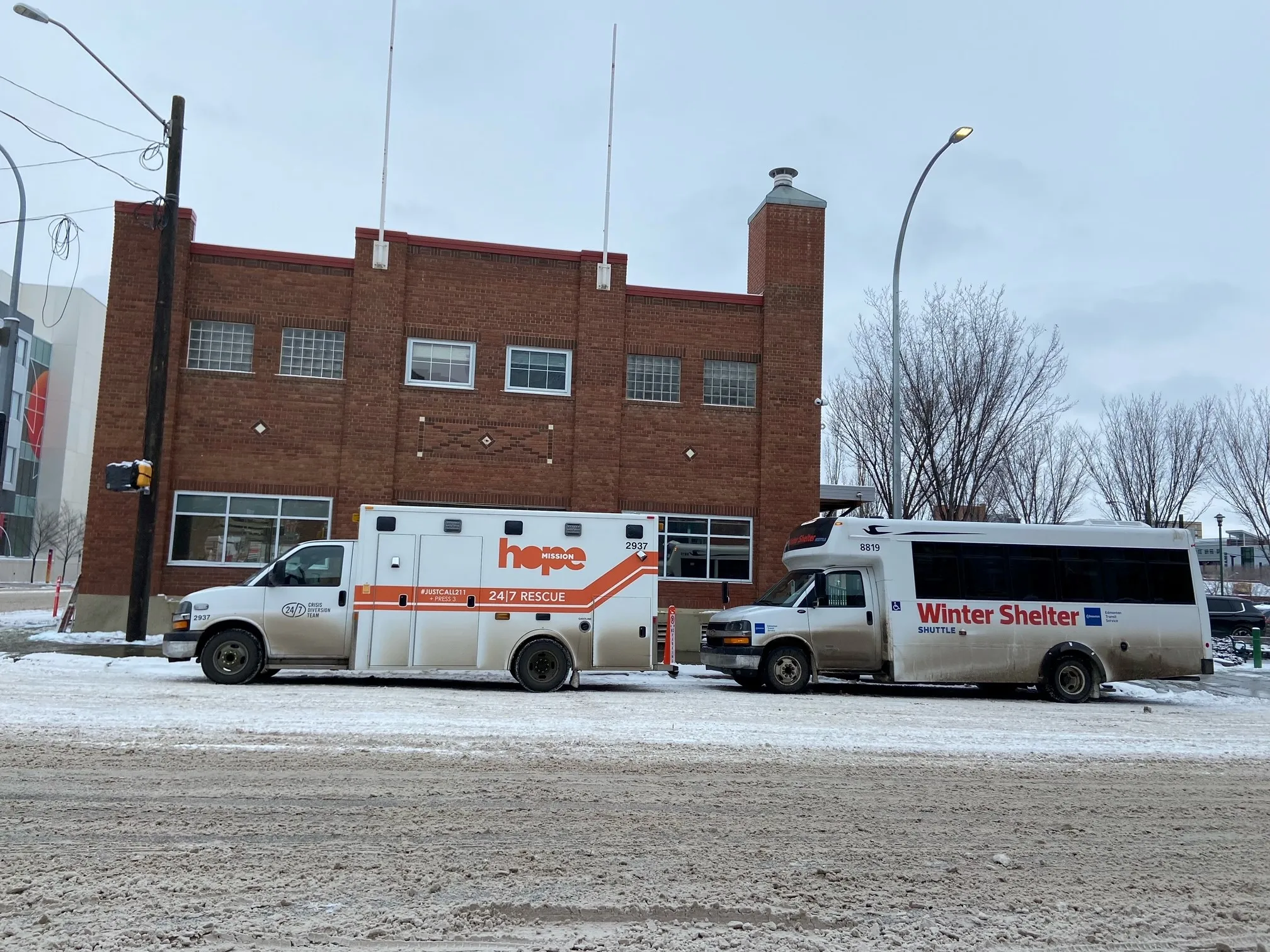Update: On Monday, June 8, 2024, Leduc City Council voted to rescind its motion to open a seasonal emergency shelter.

Just one meeting after Leduc, Alta., councillors narrowly voted in favour of opening a seasonal emergency shelter for the city’s homeless, the debate at council is being reopened.
In a tight 4-3 vote on June 24, city council agreed to develop an extreme cold weather emergency shelter. But now, councillors in the city south of Edmonton are voting again Monday night.
“For this to come back one meeting later, with someone wanting to rescind that motion, it’s puzzling to me,” Leduc city councillor Ryan Pollard said ahead of Monday’s vote.
“We don’t have any new information, nothing groundbreaking. There’s been no material change in circumstances. And so in my view, it’s not good practice to do that.”
Pollard put forward the original motion. The Hub — the city’s only homeless shelter — shut down in May after its lease was up and it couldn’t find a suitable new location.
It started 15 years ago as an emergency shelter in the winter but grew and evolved into a community centre. It had 10 emergency shelter beds and provided social services like meals and laundry.
Pollard believes a cold weather shelter is essential to the community.
“We need something for people that are in danger of losing their lives due to extreme weather.”
City council is reviewing the plan. Mayor Bob Young agreed the city’s homeless, of which he said there are only a handful of people, do need help but just having a shelter that opens during extreme cold is a Band-Aid solution.
“That shelter would only have been open less than 15 days last winter. And so what do people do for the other 160 days in winter?” Young said.
“Shelters in some places are absolutely necessary, but they don’t solve the problem.”
The mayor suggests administration should explore the merits of hiring more staff to assist vulnerable people, as well as directing them to the province’s navigation centre in Edmonton.
He visited the centre and said he was amazed at how all the necessary services are in one space.
“The only way to help homeless people is to get them to the services they need, that’s what I’m proposing,” Young said.
“City of Leduc, we’re 36,000 people. To spend the resources that we’re going to have to put in to provide an emergency extreme weather overnight shelter for 15 days — it just doesn’t make sense to me.”
The mayor believes a more full-fledged facility with social workers and wraparound services would would provide better year-round access.
“If we have the services here, I would have no problem. We aren’t just going to take people and dump them in Edmonton.”
Leduc HUB Association board chair Shannon Dalke said if funded, they have the capacity to run a navigation centre similar to what is in Edmonton.
In a five-page letter addressed to Leduc city council on July 4, The Hub wrote, “the closeness of the original motion’s vote highlights the critical importance of all council members being aware of and understanding the complexities surrounding this issue.”
“These are our neighbours and they need help here,” Dalke said, adding while smaller communities may not deal with homeless on the same scale as cities like Edmonton and Calgary, they are home to vulnerable people who for various reasons — loss of job or housing, illnesses, addictions or other complex issues — are living rough.
“All of these small towns need to find ways in order to help these vulnerable people,” she said, adding the Hub was doing that until it closed two months ago.
“They were coming in and we were giving them the help that they needed — and we can still do that.”
In the two months since The Hub was forced to close its doors, the association said eight homeless residents of Leduc have died — adding that is the same number of clients the Hub lost during the previous 12-month period. Dalke said she’s on edge.
“Our people need somewhere to go.”
The Hub board said it recognizes emergency shelters alone cannot solve homelessness.
“We also recognize this service protects life and preserves dignity. Shelters alleviate the inhumane circumstances that erode people’s ability to be lifted from poverty, access critical social services, and transition into supportive housing,” the letter said.
Pollard, who has also toured the Edmonton navigation centre, agrees.
“If we are missing a key piece of the puzzle — shelter — people are in danger of not having their physiological needs of shelter and whatnot met before they can even get that help. So to say that it’s one or the other is not the correct approach in my perspective.”
The government of Alberta said anyone struggling with homelessness can be seen at the navigation and support centre.
“However, the Navigation Centre is intended to serve Edmonton and typically operates near capacity, seeing between 45 and 50 people daily. We are not encouraging organizations outside of Edmonton to bring clients to the Centre as this would create additional challenges, including getting them back to Leduc or their home communities,” said a statement from the Ministry of Mental Health and Addiction.
